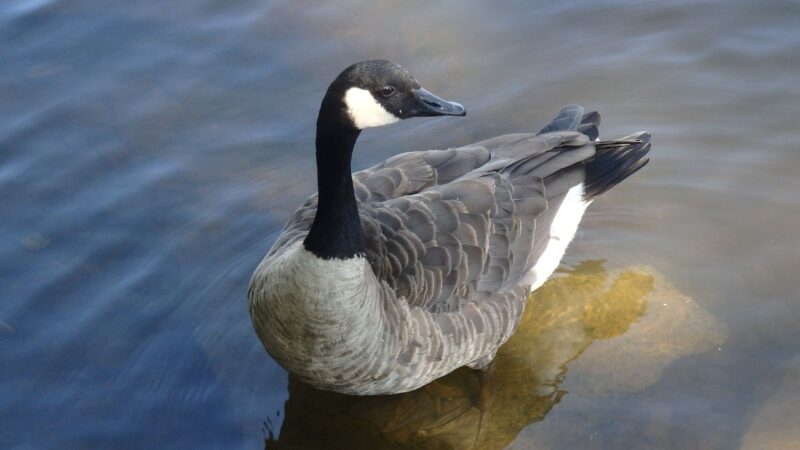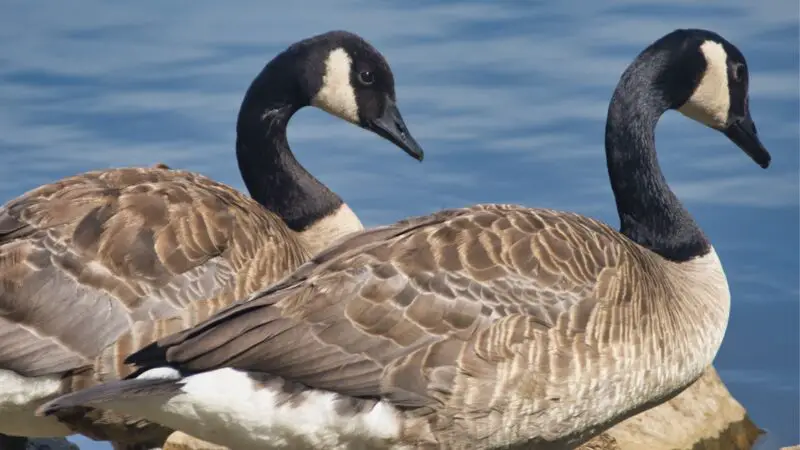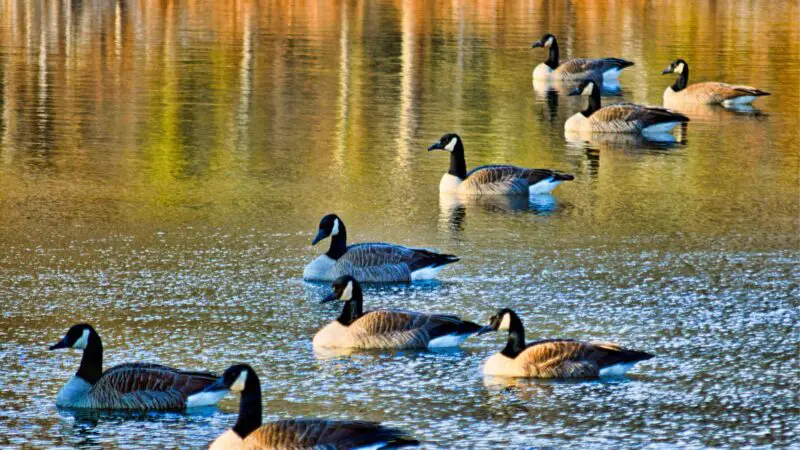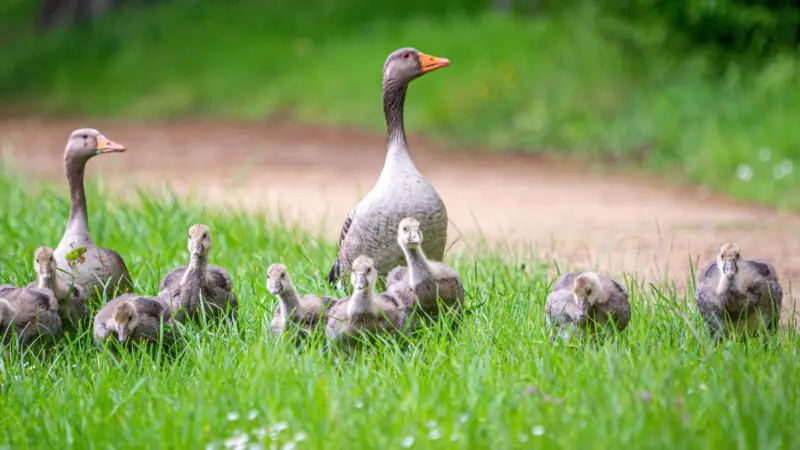As an experienced farmer, I can tell you that providing the right diet, food, and supplements for your geese is absolutely essential for their health and well-being. So, let’s dive into the world of geese nutrition and learn how to raise happy, healthy birds.

A Crystal-Clear Answer to Geese Nutrition
The right diet for geese includes a balanced mix of grains, proteins, fruits, vegetables, and supplements tailored to their age, breed, and specific needs. Proper nutrition promotes good health, strong egg production, and overall well-being.
Why You Should Keep Reading
In this article, you’ll discover the importance of a balanced diet for your geese, learn about the essential nutrients they require, explore various types of food, and get practical tips on maintaining their health. You don’t want to miss out on these invaluable insights!
What Does a Goose Need?

To ensure your geese thrive, they need access to clean water, shelter, and a balanced diet that meets their specific nutritional requirements. Geese are grazing animals and will naturally forage for food. They enjoy grass, clover, and other leafy greens but also require additional nourishment to maintain optimal health.
What Nutrients Do Geese Need?
Geese need a well-rounded diet, rich in the following nutrients:
- Protein: Essential for muscle development and maintenance, feather growth, and egg production.
- Carbohydrates: Provide energy for daily activities and body maintenance.
- Fats: A source of concentrated energy and essential fatty acids for overall health.
- Vitamins and minerals: Required for various bodily functions, including immunity and bone health.
Types of Geese Food
There are several options when it comes to feeding geese:
- Commercial feed: Formulated to meet the nutritional requirements of geese at different life stages, with options for goslings, laying geese, and maintenance diets.
- Grains: A mix of grains, such as wheat, corn, barley, or oats, can be a valuable source of energy.
- Fruits and vegetables: Geese enjoy a variety of fresh produce, which provides essential vitamins and minerals.
What Fruits and Vegetables Can Geese Eat?
Geese can eat a wide range of fruits and vegetables, such as:
- Apples
- Berries
- Grapes
- Cabbage
- Carrots
- Peas
- Lettuce
Always wash fresh produce thoroughly before offering it to your geese, and remove any seeds, pits, or inedible parts.
What Human Food Can Geese Eat?
Some human foods are safe for geese to eat, including:
- Cooked rice or pasta (plain, no sauce)
- Bread (in moderation)
- Unsalted popcorn
- Cooked vegetables (without added seasonings or butter)
Remember, human foods should be offered as occasional treats and not as a primary food source.
What Should You Not Feed Geese?

Avoid feeding your geese:
- Processed or salty foods
- Sweets or sugary treats
- Foods containing caffeine or alcohol
- Onions or garlic
- Avocado
These items can be toxic or harmful to geese and should be avoided.
How Do You Keep Geese Healthy?
To keep your geese healthy:
- Provide a balanced diet tailored to their age, breed, and specific needs.
- Supply clean, fresh water at all times.
- Keep their living environment clean and well-maintained.
- Offer shelter and protection from predators.
- Monitor their health regularly and consult with a veterinarian if you notice any signs of illness or distress.
- Implement a regular deworming and vaccination program to prevent diseases.
- Ensure your geese have enough space to roam, forage, and exercise.
- Provide them with a safe and comfortable place to rest and lay eggs.
- Encourage socialization among your geese to promote a harmonious flock.

Final Thoughts
Raising happy, healthy geese starts with providing the right diet, food, and supplements tailored to their needs. By following the guidelines shared in this article, you’ll be well on your way to ensuring your geese thrive. Remember, a well-nourished and cared-for goose is a productive and content member of your farm or homestead.
Related: What Is the Difference Between Goose and Geese? | Information and Facts
